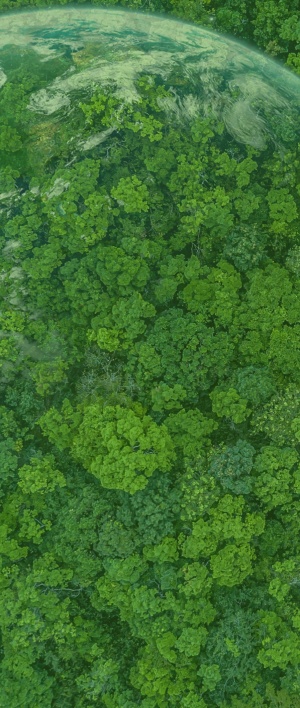Digital pollution figures
Although the impact of digital technology on the planet is difficult to discern, because it is almost invisible, it is nevertheless indisputable. Here are a few figures to illustrate the scale of the phenomenon, and show that the impact of digital technology on the environment is significant and growing.
In France
- The digital sector accounts for 2.5% of greenhouse gas (GHG) emissions in France, and could rise to 7% by 2040 (source: Ademe, 2022).
- Terminals (in particular screens and televisions) generate the bulk of the environmental impact of the digital sector in France (from 65% to 92%) (source: Arcep, 2022).
- Data centers account for between 4% and 20% of the environmental impact of the digital sector in France (source: Arcep, 2022).
- Networks account for between 4% and 13% of the environmental impact of the digital sector in France (source: Arcep, 2022).
Worldwide
- The digital sector accounts for 3% to 4% of greenhouse gas emissions worldwide (source: Arcep, 2022) and could reach 14% by 2040 (source: The Shift Project, 2020).
- Terminals account for most of the environmental impact of digital technology worldwide (60 to 75%) (source: The Shift Project, 2020).
- Data centers account for 2 to 5% of the world’s digital environmental impact (source: The Shift Project, 2020).
- Networks account for 20-30% of the world’s digital environmental impact (source: The Shift Project, 2020).
Other key figures
- In 2022, there were 34 billion digital devices in circulation worldwide (source: The Shift Project, 2020).
- Online video accounts for 60% of global Internet traffic (source: The Shift Project, 2020).
- 292 billion e-mails are sent worldwide every day (source: The Shift Project, 2020).
Taking steps to reduce it is more necessary than ever, in particular by promoting the circular economy, improving the energy efficiency of digital equipment and optimizing the use of networks. Green WiFi is undeniably a powerful response to this challenge.
The Green WiFi reforestation program to help preserve the environment together
Green WiFi is an integral part of a global approach, working right up to the end of the connectivity value chain, helping to offset the carbon footprint associated with digital technology. This concrete action takes the form of our dedicated reforestation program.
Throughout the Group, Synelience Group is taking concrete action to offset its carbon emissions and lay the foundations for greener, more environmentally-friendly growth.
This program launched by Wixalia in 2020 funds the planting of one tree for every WiFi device installed, whether it’s a WiFi access point, tablet or PC. Since 2023, we’ve extended this initiative to our intellectual services, where a day of consulting commited D/H (contract or fixed-price) also equals the planting of a tree.
In this way, all our customers contribute to the planting of these trees through the digital projects they entrust to us.
Beyond the ecological aspect, this action also contributes to the preservation of biodiversity while creating employment opportunities around the globe:
- Offsetting the carbon footprint
1 tree captures an average of 30 kg of CO2 per year. Do the math!
- Creating new ecosystems for biodiversity
The greater your needs, the greater the number of trees planted: depending on the size of your project, you can contribute to the creation of a new ecosystem for species affected by deforestation.
- Fighting poverty
In the regions where Eden Reforestation operates, each plantation contributes to job creation. In fact, 1 working day is created for every 100 trees planted.


Plant trees with Synelience, Allcolibri and Eden Reforestation
Carried out in collaboration with our partner Allcolibri, which provides companies with a “Tree as a Service” platform, the Green WiFi project is locally deployed in several countries affected by deforestation. Only indigenous tree species are planted in Central America, Haiti, Mozambique, Kenya, Madagascar, Nepal, and Indonesia. The operational aspect is handled by the NGO Eden Reforestation, which involves local communities to contribute to local economy development and poverty alleviation.
The results of our reforestation program in figures
Since its launch by Wixalia in 2020, the Green WiFi program has been showing enthusiastic results. Our common forest is growing over time, and the more than 22,000 trees planted by the end of 2023 represent :
